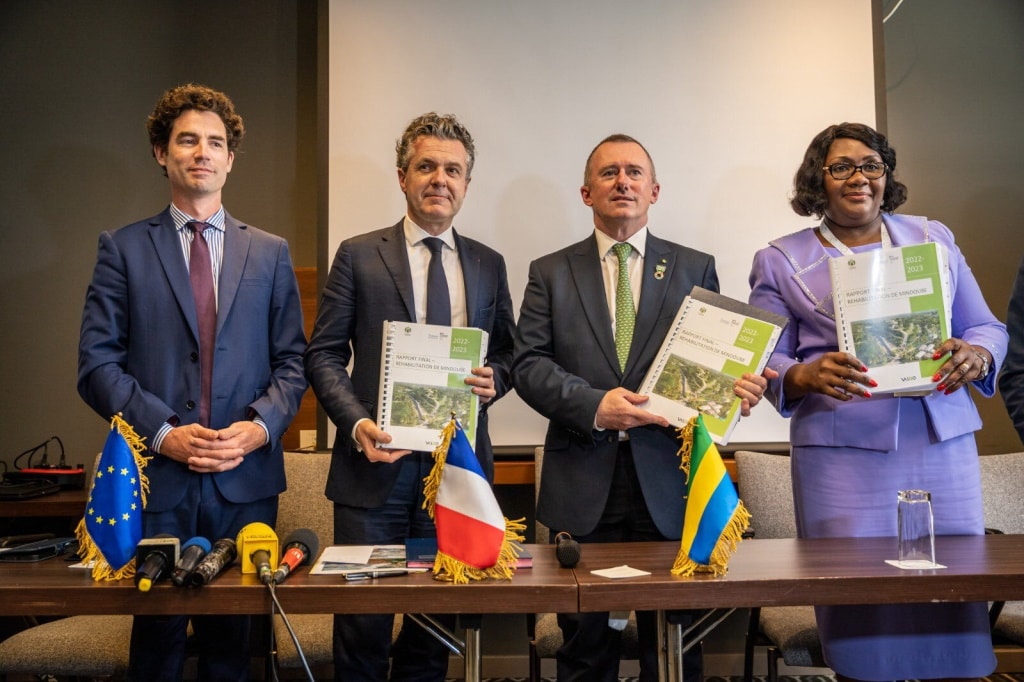In Gabon, the Mindoubé landfill site located 6 kilometres from Libreville has been saturated for several years. Faced with this situation, which is damaging the health of the population and the mangroves in the Gabonese capital, the authorities of this Central African country will benefit from technical and financial support from the French government for the rehabilitation of this site.
En marge du #OneForestSummit que le #Gabon et la #France organisent ici même dans la ville de #Libreville les 1er et 02 mars 2023, un accord pour la réhabilitation de la décharge de Mindoube dans le 5e arrondissement a été signé entre l'État et le Gouvernement français. pic.twitter.com/bSYT5r89Or
— Ville de Libreville (@MairieLbv) March 2, 2023
The agreement was signed recently between Nicole Janine Roboty-Mbou, Gabon’s Minister of the Economy and Recovery, and her French counterpart in charge of Ecological Transition and Territorial Cohesion. According to Christophe Béchu, the 30 million euro initiative will enable the Mindoubé landfill to be transformed into a waste sorting and treatment centre in accordance with international environmental standards.
“All the studies have been completed. We must now move on to its implementation to prevent the landfill from continuing to pollute and redevelop it as a sort of park,” explains Yannick Sonnet, Gabon’s High Commissioner for the Environment and the Living Environment. While the Mindoubé landfill stores nearly 700 tonnes (per day, per month? per year?) of waste, i.e. 80% of Gabon’s household waste, its future rehabilitation should contribute to the development of the circular economy, with training and job creation for young people in the recycling sector.
Read also-GABON: « La Baie des Rois », an eco-construction project in the heart of Libreville
Gabon is determined to make its cities more attractive. To achieve this, the Gabonese authorities are focusing on sanitation. In this context, the public company Clean Africa received 46 new pieces of equipment in early 2023 to improve waste management in the municipalities of Oweno, Akanda and Ntoum, which make up Greater Libreville. This includes 10 ampiroll trucks, six tippers and 30 refuse trucks.
Benoit-Ivan Wansi
